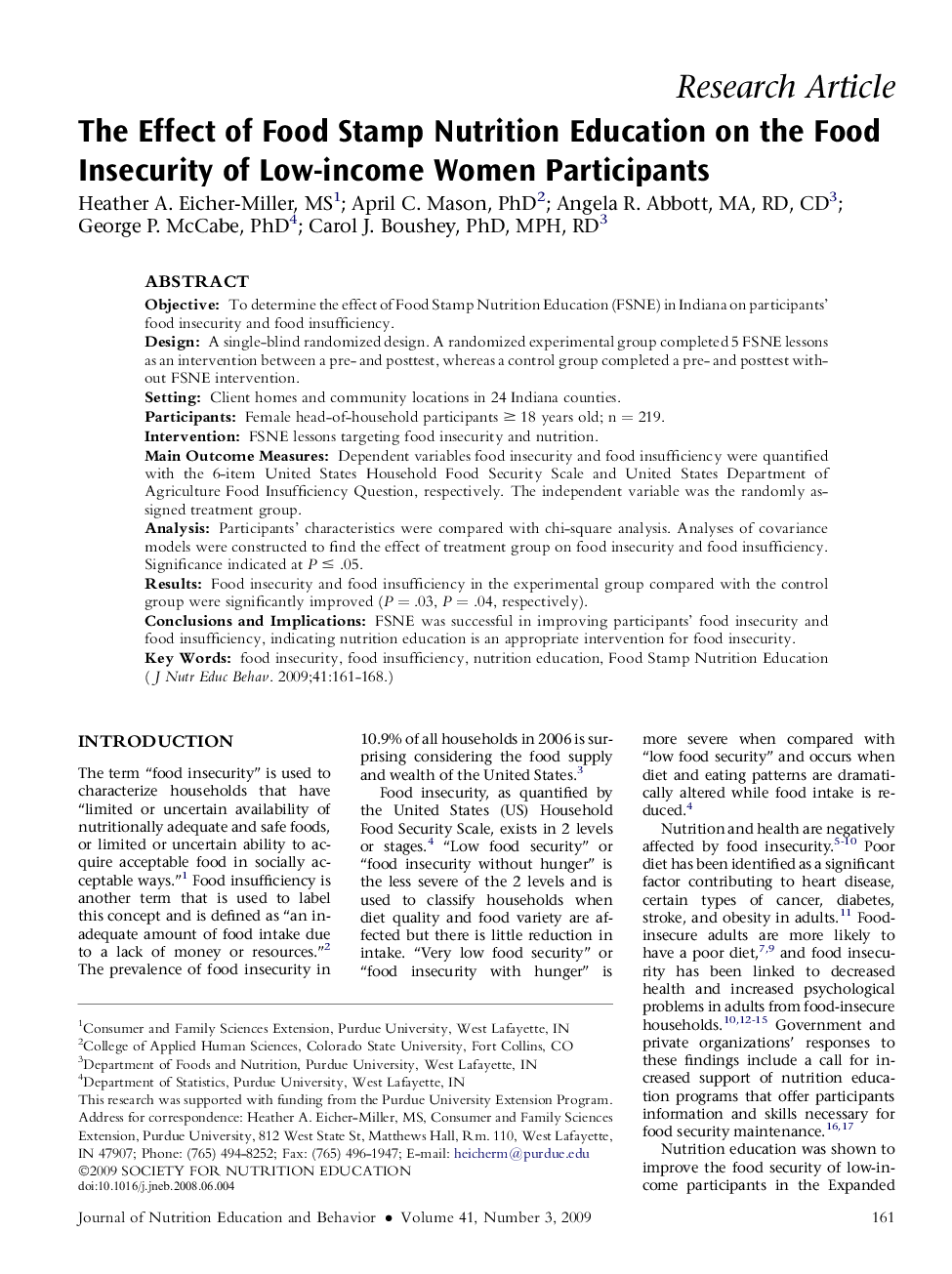| Article ID | Journal | Published Year | Pages | File Type |
|---|---|---|---|---|
| 363150 | Journal of Nutrition Education and Behavior | 2009 | 8 Pages |
ObjectiveTo determine the effect of Food Stamp Nutrition Education (FSNE) in Indiana on participants' food insecurity and food insufficiency.DesignA single-blind randomized design. A randomized experimental group completed 5 FSNE lessons as an intervention between a pre- and posttest, whereas a control group completed a pre- and posttest without FSNE intervention.SettingClient homes and community locations in 24 Indiana counties.ParticipantsFemale head-of-household participants ≥ 18 years old; n = 219.InterventionFSNE lessons targeting food insecurity and nutrition.Main Outcome MeasuresDependent variables food insecurity and food insufficiency were quantified with the 6-item United States Household Food Security Scale and United States Department of Agriculture Food Insufficiency Question, respectively. The independent variable was the randomly assigned treatment group.AnalysisParticipants' characteristics were compared with chi-square analysis. Analyses of covariance models were constructed to find the effect of treatment group on food insecurity and food insufficiency. Significance indicated at P ≤ .05.ResultsFood insecurity and food insufficiency in the experimental group compared with the control group were significantly improved (P = .03, P = .04, respectively).Conclusions and ImplicationsFSNE was successful in improving participants' food insecurity and food insufficiency, indicating nutrition education is an appropriate intervention for food insecurity.
